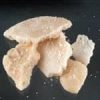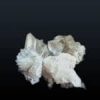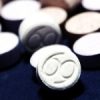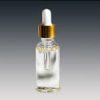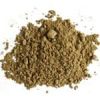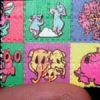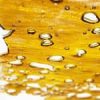Quick View on Hydromorphone
Hydromorphone is sold under the brand names Dilaudid and Exalgo. Hydromorphone belongs to a class of drugs called “opioids,” which includes morphine. It is two to eight times more potent than morphine but has a shorter duration and greater sedative properties. Prescribed as a liquid, a tablet, a rectal suppository, or an injectable solution, Dilaudid (hydromorphone) is a prescription opioid.
As with heroin and other opiates, it is commonly abused because it produces feelings of euphoria, relaxation, sedation, and it reduces anxiety. Abuse of the drug can be dangerous and potentially fatal. Overdose and death can occur when taken in high doses or when combined with other sedatives and tranquillizers. Street names for Hydromorphone include D, Dillies, Dust, Footballs, Juice, and Smack.
Tolerance occurs with prolonged use. Tolerance means that a higher dose of the drug is needed to achieve the initial effect. Increased tolerance can lead to physical dependence.
Withdrawal Symptoms
When the use of Dilaudid is stopped some withdrawal symptoms can be experienced. Here are a few;
- Drug craving,
- Body cramping,
- Sleep disturbances,
- Cold sweats,
- Diarrhea,
- Nausea
- Vomiting
- Abdominal pain
- Inability to enjoy daily activities
- Muscle and joint pain
- Runny nose and excessive secretion of tears
- Goosebump skin
- Sweating
- Depression
- Anxiety/Panic Attacks
The effects of Hydromorphone
These symptoms are common in ambulatory patients and in those not experiencing severe pain.
- constipation,
- pupillary constriction,
- urinary retention,
- nausea,
- vomiting,
- headache,
- respiratory depression,
- sweating,
- light-headedness,
- impaired coordination,
- loss of appetite,
- dizziness,
- itching,
It may also cause;
- mental clouding,
- changes in mood,
- nervousness, and
Dependency Signs and Symptoms
Addiction has also occurred when the drug was first prescribed for a physical problem by a Physician. Becoming addicted to Hydromorphone can be difficult to detect.
Here are common signs and symptoms of Dilaudid addiction:
- Mood swings,
- Noticeable breathing problems,
- Itching/scratching,
- Excessive sweating,
- Taking laxatives to help with constipation (a common opioid side effect),
- Poor coordination,
- Nodding off,
- Tolerance (needing more to achieve the same effect).
- Withdrawal symptoms appearing,
You might also notice significant lifestyle and personality changes that may include:
- Doctor shopping,
- Stealing from pharmacies or medicine cabinets,
- Spending large sums of money to purchase illegally,
- Lying to friends and family about its use,
- Isolating from family and friends,
- Difficulty maintaining personal and professional commitments.

Overdose effects
Acute overdose of hydromorphone can produce:
- severe respiratory depression,
- drowsiness progressing to stupor or coma,
- lack of skeletal muscle tone,
- cold and clammy skin,
- constricted pupils, and
- reduction in blood pressure and heart rate.
List of Drugs
REVIEWS

Marc J. Bernard
Author,
Substance Use Disorder & Recovery Professional,
Referral & Consultation Counsellor


